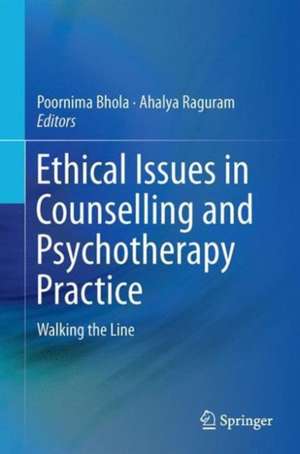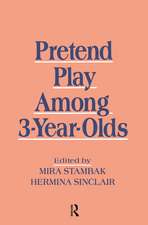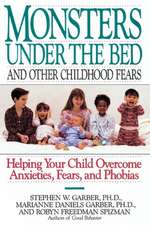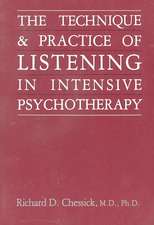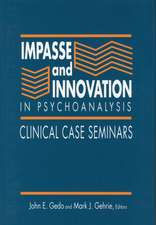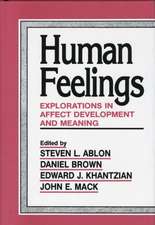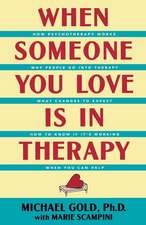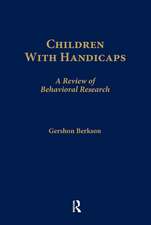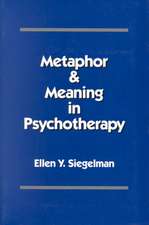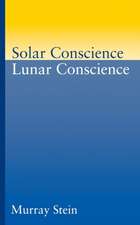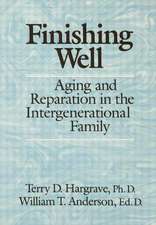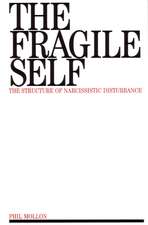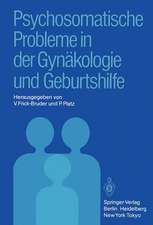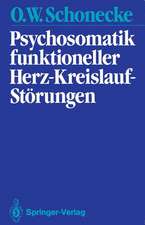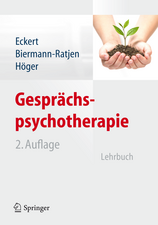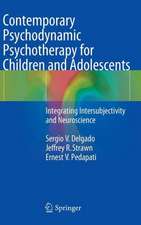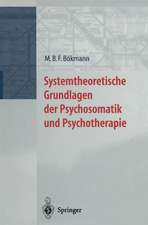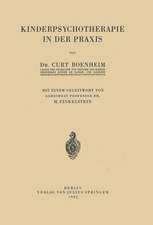Ethical Issues in Counselling and Psychotherapy Practice: Walking the Line
Editat de Poornima Bhola, Ahalya Raguramen Limba Engleză Hardback – noi 2016
| Toate formatele și edițiile | Preț | Express |
|---|---|---|
| Paperback (1) | 556.77 lei 38-44 zile | |
| Springer Nature Singapore – 29 iun 2018 | 556.77 lei 38-44 zile | |
| Hardback (1) | 579.27 lei 38-44 zile | |
| Springer Nature Singapore – noi 2016 | 579.27 lei 38-44 zile |
Preț: 579.27 lei
Preț vechi: 724.09 lei
-20% Nou
Puncte Express: 869
Preț estimativ în valută:
110.84€ • 116.04$ • 91.72£
110.84€ • 116.04$ • 91.72£
Carte tipărită la comandă
Livrare economică 02-08 aprilie
Preluare comenzi: 021 569.72.76
Specificații
ISBN-13: 9789811018060
ISBN-10: 9811018065
Pagini: 355
Ilustrații: XVIII, 247 p. 4 illus., 3 illus. in color.
Dimensiuni: 155 x 235 mm
Ediția:1st ed. 2016
Editura: Springer Nature Singapore
Colecția Springer
Locul publicării:Singapore, Singapore
ISBN-10: 9811018065
Pagini: 355
Ilustrații: XVIII, 247 p. 4 illus., 3 illus. in color.
Dimensiuni: 155 x 235 mm
Ediția:1st ed. 2016
Editura: Springer Nature Singapore
Colecția Springer
Locul publicării:Singapore, Singapore
Cuprins
Chapter 1. Navigating the ethical landscape: Critical issues in practice and training Poornima Bhola & Ahalya Raguram.- Chapter 2. The Ethical Private Practitioner Rathna Isaac.- Chapter 3. Ethics in child psychotherapy: A practitioner's perspective Sowmya Bhaskaran & Shekhar P. Seshadri.- Chapter 4.Ethical issues in working with children in the consultation-liaison context Vijaya Raman.- Chapter 5. Classroom and Counsellor Ethics: A daily balancing act Neena David.- Chapter 6. Ethical issues in working with couples and families Sobhana H., Priya Saxena, & Buli Nag Daimari.- Chapter 7. Ethical issues in working with women in sex work facing intimate partner violence Sanghamitra Iyengar.- Chapter 8. Working with survivors of sexual violence:Ethical issues and Dilemmas Anuradha Kapoor &Chandana Baksi.- Chapter 9. 'Coming out’ of the comfort zone: Challenging heteronormativity through affirmative counselling with lesbian and gay clients Ketki Ranade & Shruti Chakravarty.- Chapter 10. Employee Assistance Programmes: Emergent ethical issues Ellen Mrinalini Shinde.- Chapter 11. Intersections between ethics and technology: Online client-therapist interactions Kakli Gupta, Ananya Sinha& Poornima Bhola.- Chapter 12. Ethics in therapeutic practice: Culturally universal and valid? R. Raguram.- Chapter 13. Ethical and legal issues in Psychotherapy Vinay B., Lakshmi J.& Suresh Bada Math.- Chapter 14. Research ethics in psychotherapy and psychosocial interventions: Role of institutional ethical review boards Shoba Srinath & Poornima Bhola.
Recenzii
“This book provides a space for possible answers to ethical dilemmas, as most authors elucidate principles and factors that can help in critical thinking and decision making. In addition, it facilitates the crucial skill of reflecting, thinking and debating about these issues especially when there are no finite or clear-cut answers available. Ethical issues in counselling and psychotherapy practice: Walking the line is a must-read for all students and practitioners of mental health.” (Vidya Sathyanarayanan, Indian Journal of Medical Ethics, February, 2018)
"I found the book as a whole volume, well written and accompanied by very high level of knowledge and thought. … I added this book to the basic reading list of both my courses in Professional ethics in clinical psychology and Introduction to psychodynamic psychotherapy. I enthusiastically recommend mental health practitioners to assimilate this worthy book into their practice manuals and routine, and teachers and supervisors to use it in teaching and training.” (Gaby Shefler, International Psychology Bulletin, Vol. 22 (1), 2018)
"I found the book as a whole volume, well written and accompanied by very high level of knowledge and thought. … I added this book to the basic reading list of both my courses in Professional ethics in clinical psychology and Introduction to psychodynamic psychotherapy. I enthusiastically recommend mental health practitioners to assimilate this worthy book into their practice manuals and routine, and teachers and supervisors to use it in teaching and training.” (Gaby Shefler, International Psychology Bulletin, Vol. 22 (1), 2018)
“The book is especially appropriate for use in graduate training courses in counselling and psychotherapy. The volume is clearly and thoughtfully organized and achieves a consistent tone and direction across the variously authored chapters. … in addition to presenting a solid, nuanced treatment on the subject of ethics in counselling and psychotherapy, this volume also represents a small step of progress towards authoritative, globally informed, yet indigenously grounded texts on various aspects of counselling and therapy.” (Nigel S. Thompson, Asia Pacific Journal of Counselling and Psychotherapy, Vol. 8 (2), July, 2017)
Notă biografică
Poornima Bhola, PhD, is Associate Professor in the Department of Clinical Psychology, National Institute of Mental Health and Neuro Sciences (NIMHANS), Bangalore. She has over 18 years of experience as a therapist and has previously worked in a consultation-liaison context at St. John’s Medical College & Hospital, Bangalore. Her keen interest in ethical questions is reflected in her involvement in teaching, training and research concerning the ethics of practice. She is a member of the Ethics Committee of the Indian Association of Clinical Psychologists and of the Institutional Ethics Committee at Karunashraya Trust. She is deeply interested in understanding and enhancing the professional training and development of psychotherapists and has also been involved in the International Study of the Development of Psychotherapists. In addition, her clinical and research interests include psychotherapy processes, youth mental health and suicidality, personality disorders, psychosocial rehabilitation and workplace mental health.
Ahalya Raguram, PhD, is Professor at the Department of Clinical Psychology and the former head of the department, NIMHANS, Bangalore, with over 25 years of experience. Her clinical, teaching and research interests reflect a long-standing and abiding interest in families and interpersonal relationships as well as individual, family and couple therapies. Her research work has focused on exploring the role of client and therapist factors in the outcome of therapies in addition to examining the efficacy of different approaches to intervention. She is the coordinator of the psychotherapy training programme in in the department. In addition, she has conducted numerous training programmes to impart basic counseling and therapeutic skills to various groups including counsellors from family counselling and rehabilitation centres, lay counsellors, nursing staff as well as school and college teachers. She was an expert member of theAdvisory Committee of the Indira Gandhi National Open University, New Delhi for curriculum development of a course on family counselling. She has been a member of the Institutional Ethical Review Board at NIMHANS.
Ahalya Raguram, PhD, is Professor at the Department of Clinical Psychology and the former head of the department, NIMHANS, Bangalore, with over 25 years of experience. Her clinical, teaching and research interests reflect a long-standing and abiding interest in families and interpersonal relationships as well as individual, family and couple therapies. Her research work has focused on exploring the role of client and therapist factors in the outcome of therapies in addition to examining the efficacy of different approaches to intervention. She is the coordinator of the psychotherapy training programme in in the department. In addition, she has conducted numerous training programmes to impart basic counseling and therapeutic skills to various groups including counsellors from family counselling and rehabilitation centres, lay counsellors, nursing staff as well as school and college teachers. She was an expert member of theAdvisory Committee of the Indira Gandhi National Open University, New Delhi for curriculum development of a course on family counselling. She has been a member of the Institutional Ethical Review Board at NIMHANS.
Textul de pe ultima copertă
This edited volume comprehensively examines the critical ethical challenges that arise in the practice of counselling and psychotherapy. It translates philosophical positions and professional ethical guidelines in a way that can be applied to practice. The various chapters focus on specific ethical issues that emerge in working with a range of different client groups; for example, children, couples and families. While some ethical imperatives are common across the board, others could be more closely associated with certain client groups. Practitioners might experience uncertainty in working with vulnerable client groups; for example, lesbian/gay/transgender/intersex (LGBT) clients, or persons who report intimate partner violence. Several chapters raise questions, provide information and additional resources to enhance ethically informed practice. Chapter contributions also highlight the ethical dilemmas that might be unique to certain contexts; for example, private practice, schoolsand consultation-liaison settings. This volume also addresses contemporary and relatively less understood playing fields like ‘digital ethics’ related to therapist-client interface in the internet space and the navigation of ethical dilemmas in the newly emerging field of employee assistance programmes which address mental health needs in the corporate sector. Written by experienced practitioners of psychotherapy, and culturally contextualized, this is a valuable resource for academics and practitioners interested in psychotherapy and counselling.
Caracteristici
Provides culturally relevant content to help the reader translate knowledge into practice Includes special sections on contemporary ethical challenges in online therapeutic interactions and working with vulnerable client groups Provides select appendices with a list of key international and national professional guidelines and a sample consent form that may be used with clients in counselling/therapy Includes supplementary material: sn.pub/extras
